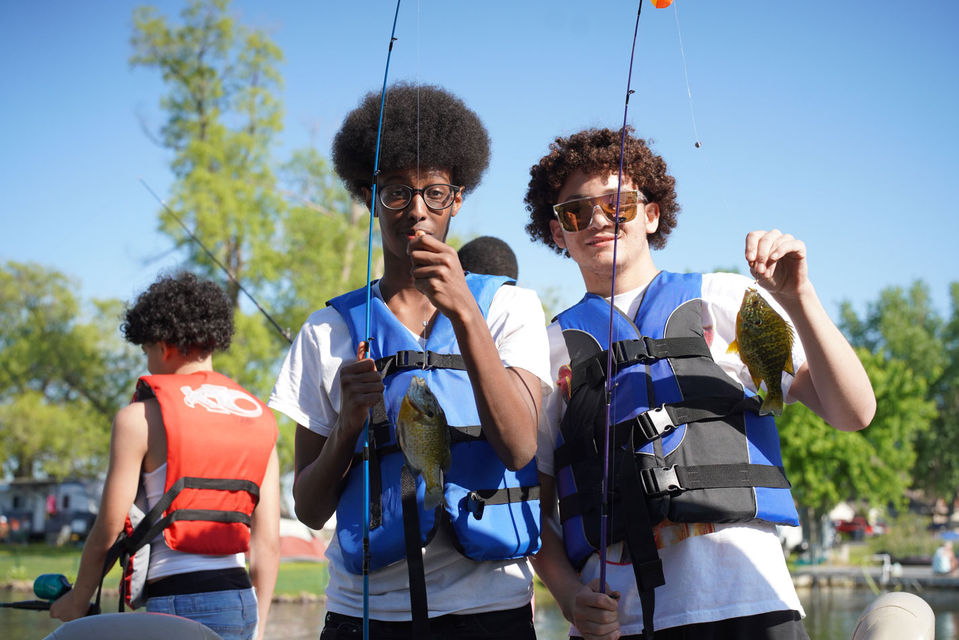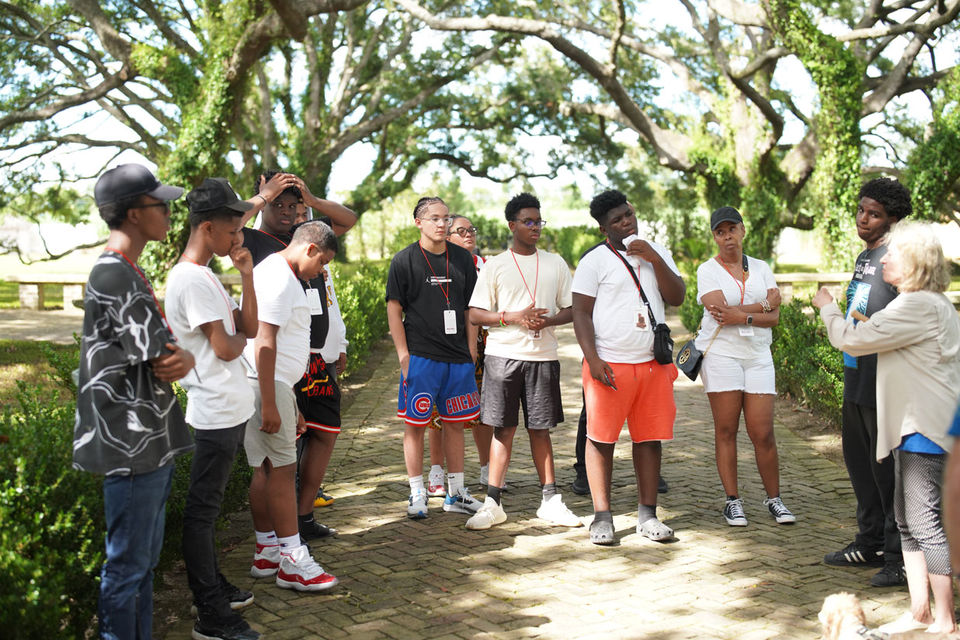
Community Work
01
Civil Rights Tour
This transformative Civil Rights Tour empowers young African American men by immersing them in the inspiring history of non-violent resistance and the quest for justice in the U.S. Over three days, students journey through iconic sites in Atlanta, GA, and Birmingham, AL, engaging deeply with the struggles and achievements of the Civil Rights Movement. Guided by experienced educators, they reflect on how past sacrifices connect with today’s fight for equity.
Tour Highlights:
-
Visits to historic sites such as Martin Luther King Jr. National Park, The King Center, the Civil Rights Memorial, and The Legacy Museum.
-
Hands-on learning beyond classroom walls, allowing students to broaden their horizons and recognize their potential in shaping the future.
-
Direct connections to civil rights history, from the fight against segregation to ongoing efforts for justice.
Impact for Funders:
-
Cultural Enrichment: Learning the history that informs their heritage and fosters pride.
-
Empowerment: Understanding their potential to influence equity and progress.
-
Broader Perspectives: Expanding beyond their neighborhoods to explore paths of opportunity.
Scope of Funding:
Support includes air and ground transportation, accommodations, and meals, making this life-changing experience accessible to all participants. Together, we can inspire these young men with the lessons of the past to empower the leaders of tomorrow.
02
Fishing Trip
Taking young Black boys fishing offers a unique set of benefits that go beyond the activity itself, providing personal, cultural, and developmental growth:
Connection to Nature
Fishing encourages boys to step away from screens and daily urban routines, connecting them to nature. This natural environment can be calming and can enhance their overall mental health, helping to reduce stress and anxiety.
Building Patience and Focus
Fishing is a lesson in patience and focus, as it requires waiting, observing, and learning about technique. These skills translate into better concentration, persistence, and resilience in other areas of life, like academics and personal relationships.
Mentorship and Bonding
Fishing trips often foster a space for mentorship and bonding, providing an opportunity for adults to have open conversations with young boys. Whether it’s a parent, teacher, or mentor, these shared moments create lasting memories and trust.
Sense of Accomplishment and Confidence
Catching a fish, even a small one, brings a great sense of accomplishment. This success can boost their confidence and self-worth, showing them that dedication and effort can yield positive results.
Encouraging Responsibility and Respect for Wildlife
Fishing teaches boys to respect the ecosystem and wildlife, cultivating responsibility and an understanding of environmental conservation.
Cultural and Historical Connection
Fishing has deep roots in many African and African American communities. Sharing these stories and traditions can foster a sense of cultural pride and identity, connecting them to their heritage in a meaningful way.
Building Lifelong Skills and Healthy Recreation
Fishing can be a lifelong hobby that offers a positive alternative to potentially harmful activities. It introduces boys to a constructive, enjoyable way to spend free time, and can even open doors to future outdoor activities and conservation interests.
03
New Orleans
Taking Black boys to Louisiana for an educational tour provides a rich, immersive experience that brings history to life, deepening their understanding of African American heritage, resilience, and cultural contributions. Here are some of the key educational benefits:
Historical Understanding of African American Experiences:
Touring sites like the Whitney Plantation provides boys with a deeper, more personal understanding of slavery and the experiences of enslaved Africans from 1808 to 1865. Learning history where it happened connects students tangibly to the past.
Exploring African and Creole Influence in the French Quarter:
The French Quarter is steeped in African, Creole, and Caribbean cultural influences, from architecture and art to food and music. Experiencing this neighborhood helps students appreciate the ways African American culture has shaped American history, especially in New Orleans, which was a major cultural and economic hub during and after slavery.
Witnessing the Legacy of Resistance and Resilience:
The Whitney Plantation tour, one of the few in the U.S. that centers on the experiences of enslaved people, allows students to hear narratives of resilience, survival, and strength. This experience can inspire a sense of pride, understanding, and connection to those who endured and resisted the injustices of slavery.
Environmental and Ecosystem Education Through the Swamp Tour:
A swamp tour educates students on the natural ecosystems of the South, showing them how enslaved people used these environments for sustenance and escape. It also highlights the importance of environmental stewardship and the cultural knowledge that Indigenous and African people had of the land and wildlife, connecting ecological awareness with cultural history.
Connecting with Music, Culture, and Culinary Traditions:
A jazz brunch on the Natchez steamboat introduces students to the roots of jazz, a quintessentially African American art form born in New Orleans. Learning about jazz’s history and enjoying Creole cuisine exposes them to the enduring cultural contributions of African Americans. This can foster an appreciation for cultural heritage and show how music, food, and community are expressions of resilience and identity.
Engaging in Experiential Learning:
Being physically present at these sites engages multiple senses and emotions, making history memorable. Walking through the French Quarter, visiting a plantation, and tasting Creole flavors provide sensory learning experiences that go beyond what can be learned from books, helping students make lasting connections to historical events and cultural traditions.
Promoting Self-Identity and Cultural Pride:
Visiting sites of African American significance can foster pride in their heritage, giving boys a stronger sense of identity and belonging. Learning how African American communities have contributed to art, cuisine, language, and history reinforces self-worth and a positive cultural identity.
Developing Empathy and Critical Thinking Skills: Experiencing these sites firsthand allows students to better understand the harsh realities of slavery and segregation, fostering empathy. It also encourages critical thinking as they reflect on how these past events influence present-day racial and social issues, connecting historical lessons with current movements for equity and justice.
This trip not only broadens their historical perspective but also cultivates pride, empathy, and inspiration by connecting them directly to the resilience and brilliance of their ancestors, enriching their understanding of what it means to be part of the African American legacy.























